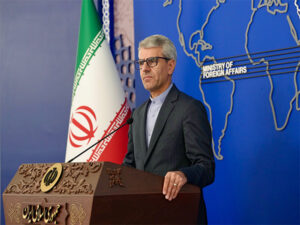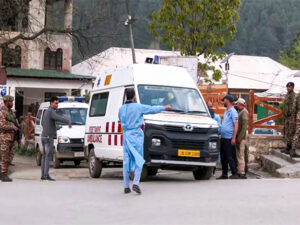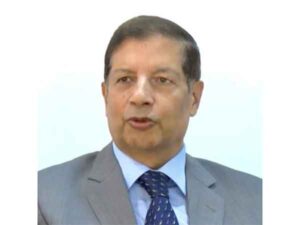US: Extreme heat kills 147 people in 5 counties
Washington DC [US], August 8 (ANI): Extreme heat in the US has killed at least 147 people in just five counties with experts say the estimate is far lower than the actual number of lives lost to the extreme heat, CNN reported.
The deaths reported occurred in three states that have suffered the worst. As of early August, 64 people had died in Pima County, Arizona; 39 in Maricopa County, Arizona; 26 in Clark County, Nevada; 11 in Webb County, Texas; and seven in Harris County, Texas.
Several heat-related deaths were also reported in California, parts of the South and the Midwest, though the tolls have not been as high as those in the five counties reported here.
Maricopa County, which is home to Phoenix and has officially tallied at least 39 heat-related deaths, has 312 more deaths still under investigation for possible heat-related causes of death.
As per CNN, the fatalities came as temperatures soared to record-breaking levels at the end of June, and continued to bake much of the South and Southwest through July.
Phoenix logged the hottest month of any US city on record, with 31 consecutive days at or above 110 degrees Fahrenheit from June into July.
The death toll from extreme heat to date is far higher than tornadoes and flooding combined. Scientists have cautioned that heat waves will continue to get worse with the climate crisis, yet there are still many places that fail to accurately or regularly report heat-related deaths.
A physician and historian at Harvard University, David S. Jones, said the numbers reported here and more widely across the country are likely underestimates. He called the counts “mysterious.”
“The low numbers of reported death really puzzle me. Less severe heat waves in the US have killed hundreds of people in the past. I think it is very likely that the current mortality reports from the US in the summer of 2023 are a significant undercount, though I have no proof of that,” Jones told CNN.
Jones noted that the death toll could be low in the South because people are more acclimated to the heat and generally have more access to air conditioning. (ANI)






